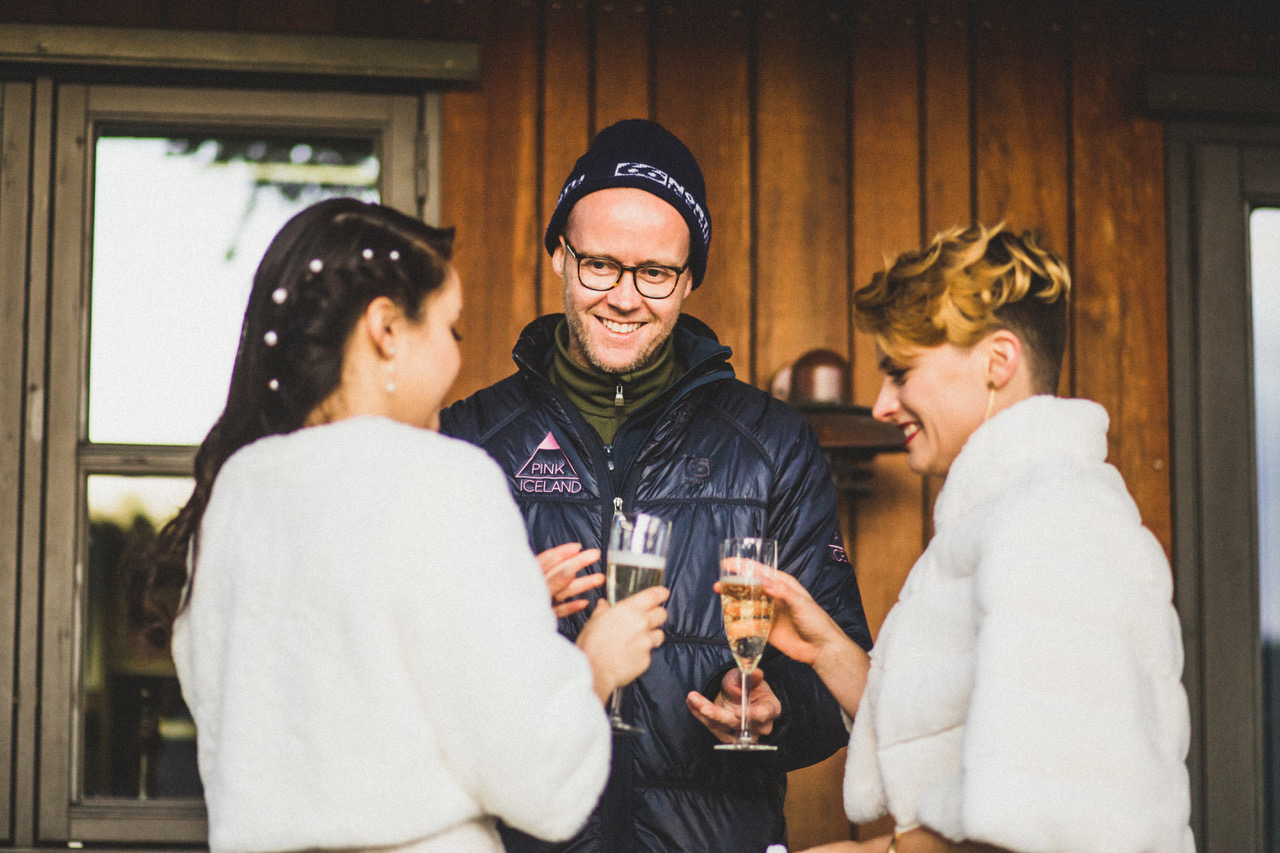Pink Iceland is back in business offering their boutique wedding services to LGBTQ+ couples from around the world after a challenging year of COVID-19. At one point, owners of the company had to let everyone go—including themselves—and cross their fingers that a vaccine would bring an end to the toughest restrictions.
“It was incredibly tough,” says Pink Iceland co-owner Hannes Pálsson. “We got these restrictions on March 16th of 2020, and then we had this avalanche of cancellations and postponements. We were in the same boat as everybody else. We started postponing things for two or three months, and then four months, five months, six months, thinking that this would blow over. But then it became more and more clear that things were not going to work out. Because we were just pushing this problem down the road two or three months at a time, we were sitting here accumulating debt. We were getting zero income but we had all our staff.”
“We started getting inquiries again. […] At the same time, now we’re coming back with a mountain of debt, most of which we owe to the government.”
At a certain part we were able to retain staff at 25% capacity, so we would pay them 25% of their salaries and they were only allowed to work 25% of whatever their work ratio was, and then the government subsidized the rest. But with seven or eight staff, even 25% of their salaries is incredibly expensive when you’re making no money. So it came to the point when we actually had to let everyone go, including ourselves. We the owners, we’re just salaried staff at the company. So we had to let all of us go.”
After vaccinations began being rolled out in Iceland and across the world earlier this year, things slowly began returning to normal.
“We started getting inquiries again, and with a government resource we were able to hire ourselves and most of our staff back,” Hannes says. “Our salaries are being subsidized for a period of time, so we’re back to seven full time staff members, which is more than what we could have hoped for. We couldn’t have done that without this government subsidizing salaries for those that are coming off unemployment. So this has been an incredible safety net for us.

“I really feel that people are choosing a destination and spending more time in it than before the pandemic, because flying is a bit more tricky but then once you arrive you get to really enjoy yourselves.”
At the same time, now we’re coming back with a mountain of debt, most of which we owe to the government. I think we’re probably close to 25 million króna in debt to the state and our bank. I also tried to calculate how much we’ve given back to the state over the past ten years. This is just a very loose calculation, but we’ve given back as a company and through our clients between 250 to 300 million króna. So what we get in terms of support we’re incredibly grateful for, but we also want to acknowledge that we have given 10 or 15 times that much back to the mutual funds of our country just in taxation.”
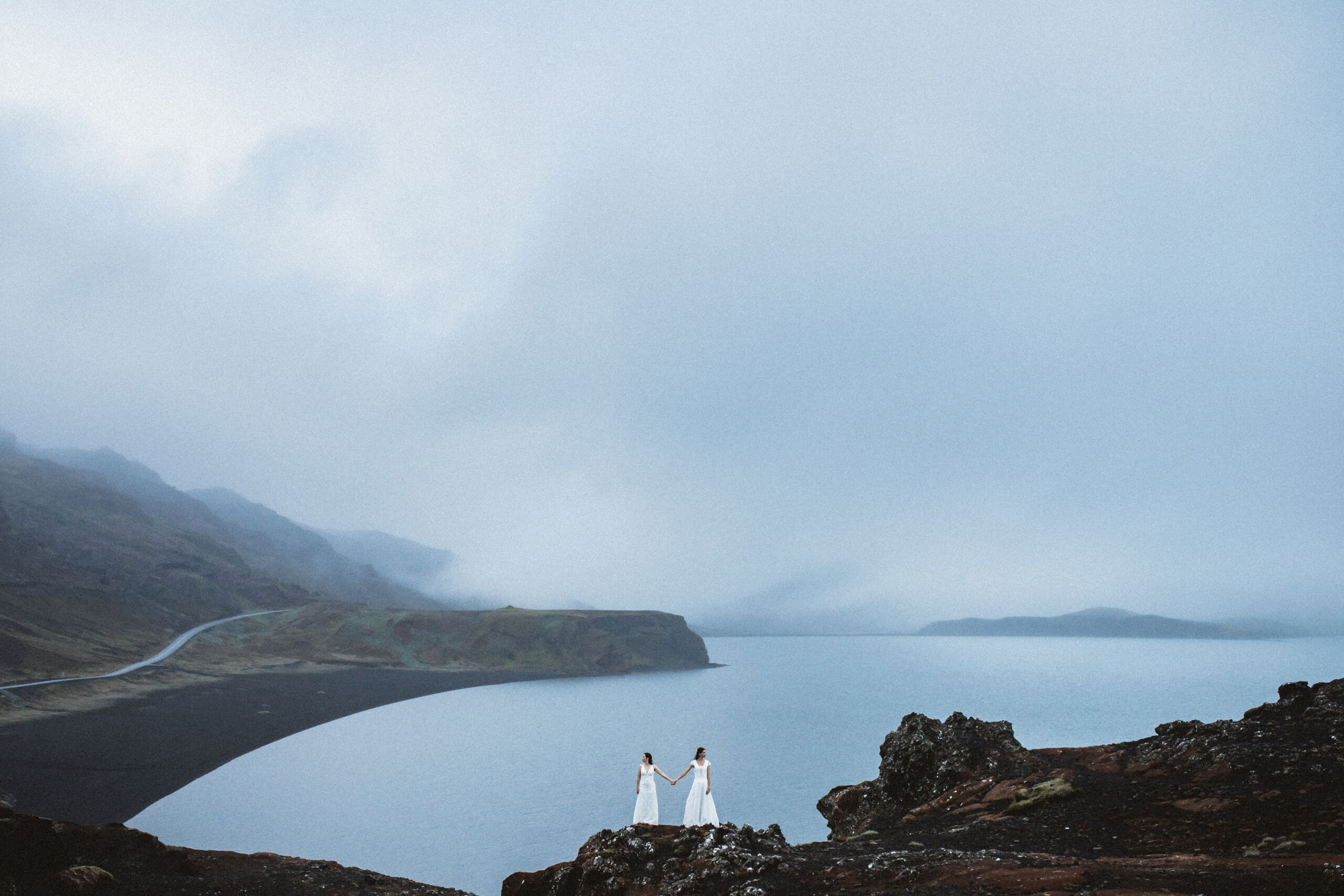
Since COVID-19 restrictions started being lifted in Iceland, Hannes says Pink Iceland has been flooded with calls from people who want to get back to travelling. In September and October of this year alone, he says the company is planning 43 weddings.
“There’s pretty much zero effect on how a wedding is celebrated,” Hannes says about the current restrictions in Iceland. “The restrictions allow for 200 people gathering, and we rarely have more than 200 guests. So that’s not something that affects our business and wedding planning at all. So people can come here and enjoy just full freedom. They can hang out with their guests, they can go to a reception where nobody has to wear masks. The only difference is that everything has to close at around 1 a.m. But wedding receptions typically end at around 1 a.m., so it’s not a huge thing. We just start the day earlier and we make sure that everybody has time to enjoy a good meal and hang out afterwards.”
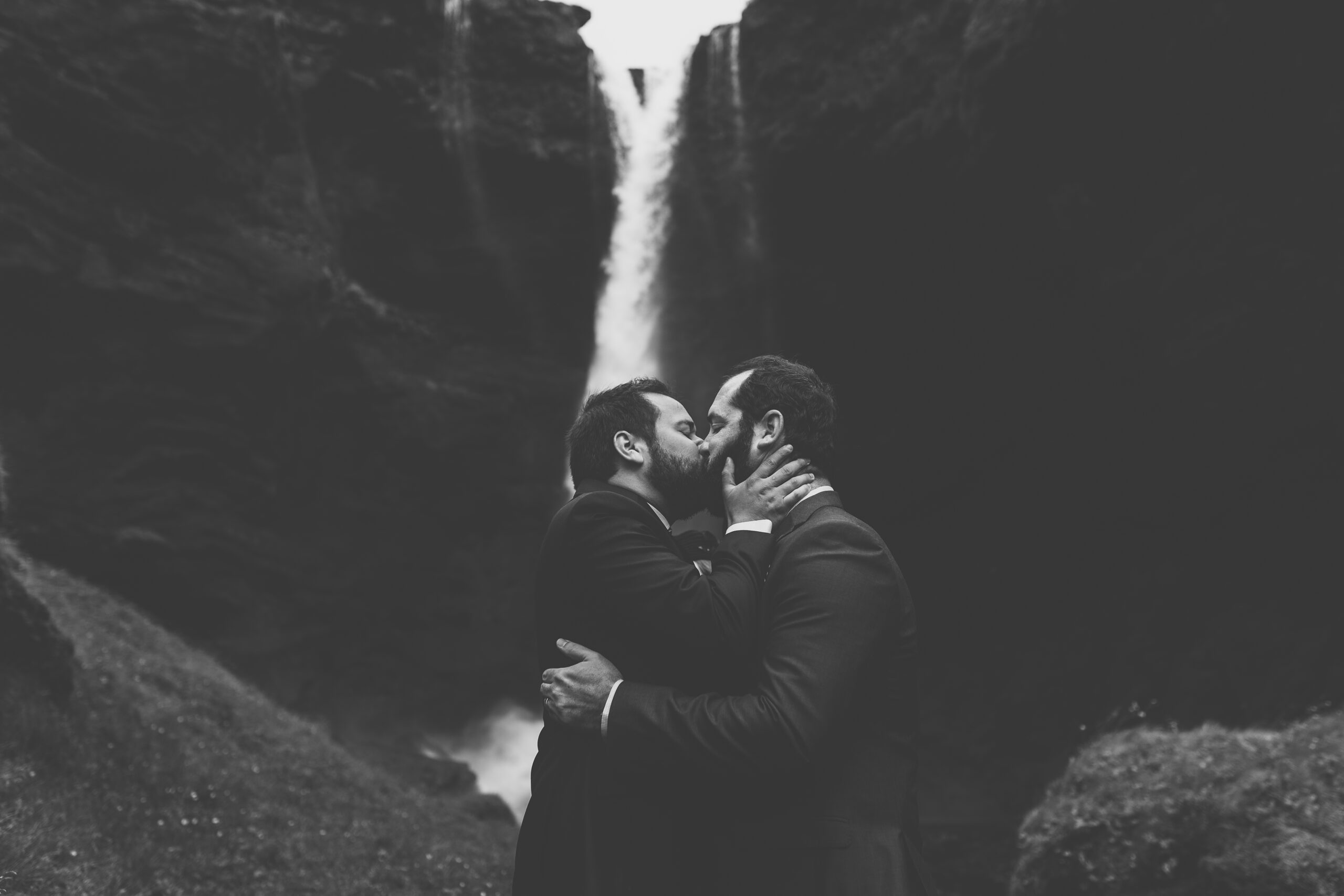
Despite the fact that tourism’s hardly affected by these restrictions—except for an extra hour or two at the airport—Hannes says he’s seen how the pandemic is changing the way people travel.
“People are staying longer than they did before,” he explains. “There’s a slower pace of travel. People are immersing themselves more. I really feel that people are choosing a destination and spending more time in it than before the pandemic, because flying is a bit more tricky but then once you arrive you get to really enjoy yourselves. We’ve seen so many people, rather than come here for three days, stay here for a week. And they’re really splurging as well, which is fun. People feel like they’ve been held back for so long that they finally get this amazing opportunity to travel and they really want to splurge a bit and enjoy their time.”
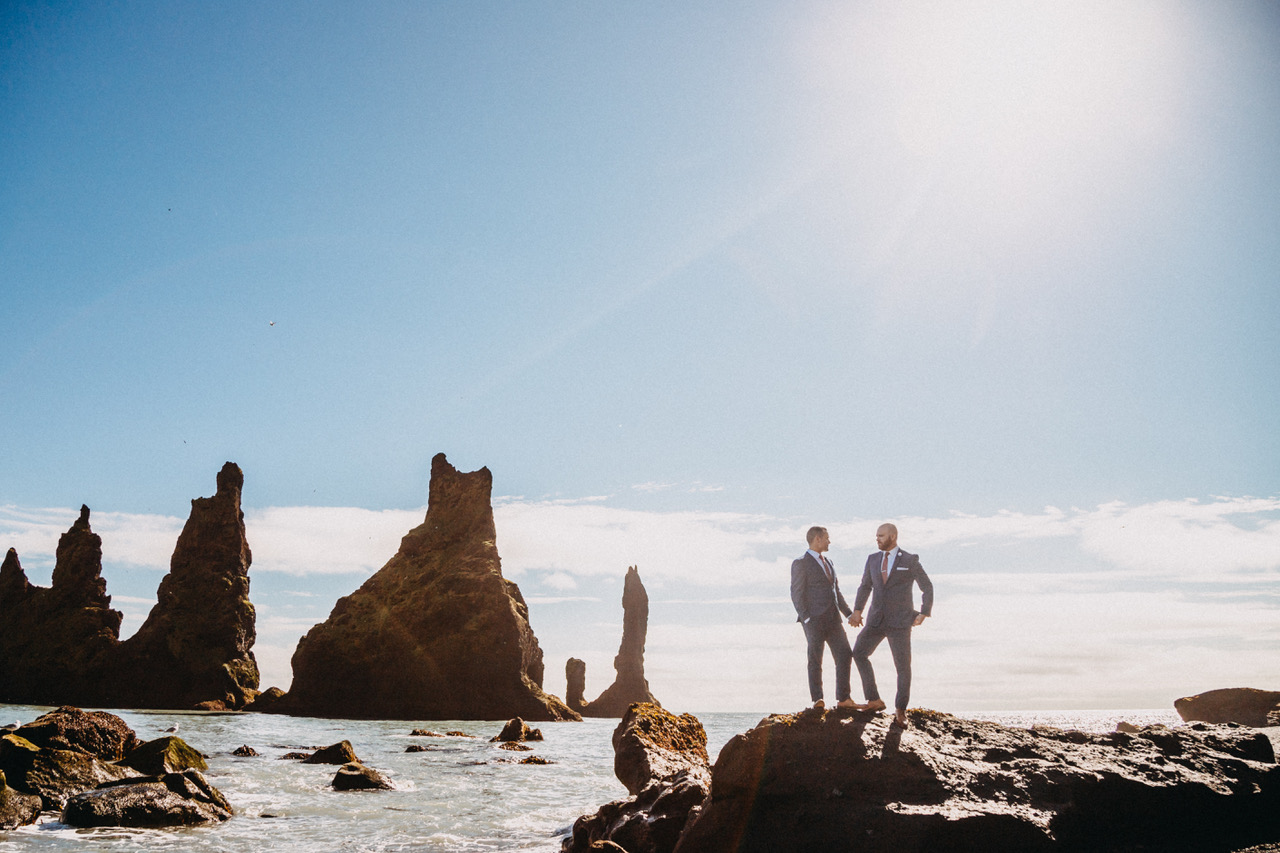
Although vaccinations have quickly been rolled out in many parts of the world, and a “new normal” seems to be on the horizon, concerns about future pandemics remain in the minds of epidemiologists and public health officials. When asked if these concerns are affecting the way Pink Iceland conducts its business, Hannes admits they may be “subconsciously.”
“I don’t think we will start investing heavily,” he says. “Rather than grow, we’d like to sustain ourselves as a small boutique travel company for people who want to spend some time in the country. Rather than focus on the possibility of a future pandemic, I think what we’re more focused on thinking about is how we structure our business. How we approach everything that we do from here on out is much more to do with environmental responsibility and sustainability. It’s a fact that tourism contributes 10% of greenhouse gases in the world, and we need to address that.
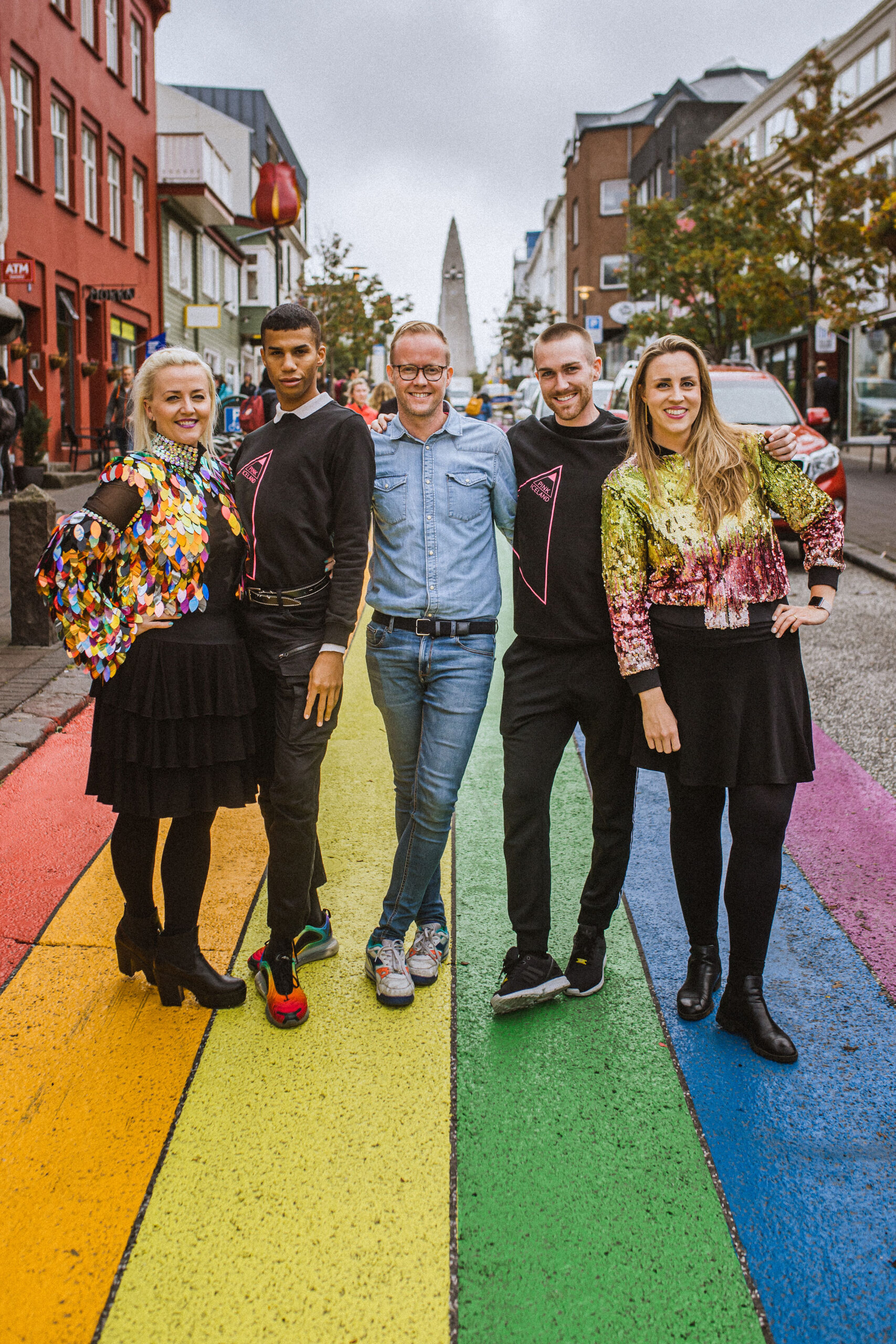
I think we all want to continue traveling, but how can we do it in a more sustainable way? We can do that by spending more time in each country that we visit. And that’s how we want to do things here and how we’re structuring our company. We’ve always been carbon neutral in terms of contributing to projects that get us to carbon neutrality, but we want to do more than that. In the future we’re working on contributing to projects that lead us to becoming carbon negative. Neutrality is no longer good enough. We don’t want to just be planting trees and patting ourselves on the back. For example, there’s a wetlands program here in Iceland that is capturing carbon, and we want to start buying a carbon quota as well. There’s also a brand new project here looking at grand scale reforestation, which is really interesting.
“I don’t think we will start investing heavily,” he says. “Rather than grow, we’d like to sustain ourselves as a small boutique travel company for people who want to spend some time in the country.”
We are an LGBTQ company, and we are held to higher standards than most other companies. We also hold ourselves to higher standards because we serve a community and because we are a values-based company. We have to make money—that’s just a fact. But we also want to leave some kind of legacy behind in terms of our environmental impact or lack thereof, and our contribution to and for the queer community. So I think that’s where we’re going to be focused.”

